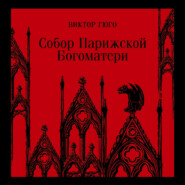По всем вопросам обращайтесь на: info@litportal.ru
(©) 2003-2024.
✖
Les Misérables, v. 1
Настройки чтения
Размер шрифта
Высота строк
Поля
Javert felt for a moment as if he were going mad; he experienced at this instant the most violent emotions he had ever felt in his life, following each other in rapid succession, and almost mingled. To see a girl of the town spit in the Mayor's face was so monstrous a thing that he would have regarded it as sacrilege even to believe it possible. On the other side, he confusedly made a hideous approximation in his mind between what this woman was and what this Mayor might be, and then he saw with horror something perfectly simple in this prodigious assault. But when he saw this Mayor, this magistrate, calmly wipe his face, and say, "Set this woman at liberty," he had a bedazzlement of stupor, so to speak; thought and language failed him equally, for he had passed the limits of possible amazement. He remained dumb. His sentence had produced an equally strange effect on Fantine; she raised her bare arm, and clung to the chimney-key of the stove like a tottering person. She looked around, and began saying in a low voice, as if speaking to herself, —
"At liberty! I am to be let go! I shall not be sent to prison for six months! Who said that? It is impossible that any one said it. I must have heard badly; it cannot be that monster of a Mayor. Was it you, my kind M. Javert, who said that I was to be set at liberty? Well, I will tell you all about it, and you will let me go. That monster of a Mayor, that old villain of a Mayor, is the cause of it all. Just imagine, M. Javert, he discharged me on account of a parcel of sluts gossiping in the shop. Was not that horrible, – to discharge a poor girl who is doing her work fairly! After that I did not earn enough, and all this misfortune came. In the first place, there is an improvement which the police gentry ought to make, and that is to prevent persons in prison injuring poor people. I will explain this to you; you earn twelve sous for making a shirt, but it falls to seven, and then you can no longer live, and are obliged to do what you can. As I had my little Cosette I was forced to become a bad woman. You can now understand how it was that beggar of a Mayor who did all the mischief. My present offence is that I trampled on the gentleman's hat before the officers' café, but he had ruined my dress with snow; and our sort have only one silk dress for night. Indeed, M. Javert, I never did any harm purposely, and I see everywhere much worse women than myself who are much more fortunate. Oh, Monsieur Javert, you said that I was to be set at liberty, did you not? Make inquiries, speak to my landlord; I pay my rent now, and you will hear that I am honest. Oh, good gracious! I ask your pardon, but I have touched the damper of the stove without noticing it, and made a smoke."
M. Madeleine listened to her with deep attention: while she was talking, he took out his purse, but as he found it empty on opening it, he returned it to his pocket. He now said to Fantine, —
"How much did you say that you owed?"
Fantine, who was looking at Javert, turned round to him, —
"Am I speaking to you?"
Then she said to the soldiers, —
"Tell me, men, did you see how I spat in his face? Ah, you old villain of a Mayor! you have come here to frighten me, but I am not afraid of you; I am only afraid of M. Javert, my kind Monsieur Javert."
While saying this, she turned again to the Inspector, —
"After all, people should be just. I can understand that you are a just man, M. Javert; in fact, it is quite simple; a man who played at putting snow down a woman's back, made the officers laugh; they must have some amusement, and we girls are sent into the world for them to make fun of. And then you came up: you are compelled to restore order; you remove the woman who was in the wrong, but, on reflection, as you are kind-hearted, you order me to be set at liberty, for the sake of my little girl, for six months' imprisonment would prevent my supporting her. Only don't come here again, fagot! Oh, I will not come here again, M. Javert; they can do what they like to me in future, and I will not stir. Still I cried out to-night because it hurt me; I did not at all expect that gentleman's snow; and then besides, as I told you; I am not very well, – I cough, I have something like a ball in my stomach which burns, and the doctor says: "Take care of yourself." Here, feel, give me your hand; do not be frightened."
She no longer cried, her voice was caressing; she laid Javert's large coarse hand on her white, delicate throat, and looked up at him smilingly. All at once she hurriedly repaired the disorder in her clothes, let the folds of her dress fall, which had been almost dragged up to her knee, and walked toward the door, saying to the soldiers with a friendly nod, —
"My lads, M. Javert says I may go, so I will be off."
She laid her hand on the hasp; one step further, and she would be in the street. Up to this moment Javert had stood motionless, with his eyes fixed on the ground, appearing in the centre of this scene like a statue waiting to be put up in its proper place. The sound of the hasp aroused him: he raised his head with an expression of sovereign authority, – an expression the more frightful, the lower the man in power stands; it is ferocity in the wild beast, atrocity in the nobody.
"Sergeant," he shouted, "do you not see that the wench is bolting? Who told you to let her go?"
"I did," said Madeleine.
Fantine, at the sound of Javert's voice, trembled, and let go the hasp, as a detected thief lets fall the stolen article. At Madeleine's voice she turned, and from this moment, without uttering a word, without even daring to breathe freely, her eye wandered from Madeleine to Javert, and from Javert to Madeleine, according as each spoke. It was evident that Javert must have been "lifted off the hinges," as people say, when he ventured to address the sergeant as he had done, after the Mayor's request that Fantine should be set at liberty. Had he gone so far as to forget the Mayor's presence? Did he eventually declare to himself that it was impossible for "an authority" to have given such an order, and that the Mayor must certainly have said one thing for another without meaning it? Or was it that, in the presence of all the enormities he had witnessed during the last two hours, he said to himself that he must have recourse to a supreme resolution, that the little must become great, the detective be transformed into the magistrate, and that, in this prodigious extremity, order, law, morality, government, and society were personified in him, Javert? However this may be, when M. Madeleine said "I did," the Inspector of Police could be seen to turn to the Mayor, pale, cold, with blue lips, with a desperate glance, and an imperceptible tremor all over him, and – extraordinary circumstance! – to say to him, with downcast eye, but in a fierce voice, —
"Monsieur le Maire, that cannot be."
"Why so?"
"This creature has insulted a gentleman."
"Inspector Javert," M. Madeleine replied with a conciliating and calm accent, "listen to me. You are an honest man, and I shall have no difficulty in coming to an explanation with you. The truth is as follows: I was crossing the market-place at the time you were leading this girl away; a crowd was still assembled; I inquired, and know all. The man was in the wrong, and, in common justice, ought to have been arrested instead of her."
Javert objected, —
"The wretched creature has just insulted M. le Maire."
"That concerns myself," M. Madeleine said; "my insult is, perhaps, my own, and I can do what I like with it."
"I ask your pardon, sir; the insult does not belong to you, but to the Judicial Court."
"Inspector Javert," Madeleine replied, "conscience is the highest of all courts. I have heard the woman, and know what I am doing."
"And I, Monsieur le Maire, do not know what I am seeing."
"In that case, be content with obeying."
"I obey my duty; my duty orders that this woman should go to prison for six months."
M. Madeleine answered gently, —
"Listen to this carefully; she will not go for a single day."
On hearing these decided words, Javert ventured to look fixedly at the Mayor, and said to him, though still with a respectful accent, —
"I bitterly regret being compelled to resist you. Monsieur le Maire, it is the first time in my life, but you will deign to let me observe that I am within the limits of my authority. As you wish it, sir, I will confine myself to the affair with the gentleman. I was present; this girl attacked M. Bamatabois, who is an elector and owner of that fine three-storied house, built of hewn stone, which forms the corner of the Esplanade. Well, there are things in this world! However this may be, M. le Maire, this is a matter of the street police which concerns me, and I intend to punish the woman Fantine."
M. Madeleine upon this folded his arms, and said in a stern voice, which no one in the town had ever heard before, —
"The affair to which you allude belongs to the Borough police; and by the terms of articles nine, eleven, fifteen, and sixty-six of the Criminal Code, I try it. I order that this woman be set at liberty."
Javert tried a final effort.
"But, Monsieur le Maire – "
"I call your attention to article eighty-one of the law of Dec. 13th, 1799, upon arbitrary detention."
"Permit me, sir – "
"Not a word!"
"Still – "
"Leave the room!" said M. Madeleine.
Javert received the blow right in his chest like a Russian soldier; he bowed down to the ground to the Mayor, and went out. Fantine stood up against the door, and watched him pass by her in stupor. She too was suffering from a strange perturbation: for she had seen herself, so to speak, contended for by two opposite powers. She had seen two men struggling in her presence, who held in their hands her liberty, her life, her soul, her child. One of these men dragged her towards the gloom, the other restored her to the light. In this struggle, which she gazed at through the exaggeration of terror, the two men seemed to her giants, – one spoke like a demon, the other like her good angel. The angel had vanquished the demon, and the thing which made her shudder from head to foot was that this angel, this liberator, was the very man whom she abhorred, the Mayor whom she had so long regarded as the cause of all her woes; and at the very moment when she had insulted him in such a hideous way, he saved her. Could she be mistaken? Must she change her whole soul? She did not know, but she trembled; she listened wildly, she looked on with terror, and at every word that M. Madeleine said, she felt the darkness of hatred fade away in her heart, and something glowing and ineffable spring up in its place, which was composed of joy, confidence, and love. When Javert had left the room, M. Madeleine turned to her, and said in a slow voice, like a serious man who is making an effort to restrain his tears, —
"I have heard your story. I knew nothing about what you have said, but I believe, I feel, that it is true. I was even ignorant that you had left the factory, but why did you not apply to me? This is what I will do for you; I will pay your debts and send for your child, or you can go to it. You can live here, in Paris, or wherever you please, and I will provide for your child and yourself. I will give you all the money you require, and you will become respectable again in becoming happy; and I will say more than that: if all be as you say, and I do not doubt it, you have never ceased to be virtuous and holy in the sight of God! Poor woman!"
This was more than poor Fantine could endure. To have her Cosette! to leave this infamous life! to live free, rich, happy, and respectable with Cosette! to see all these realities of Paradise suddenly burst into flower, in the midst of her wretchedness! She looked as if stunned at the person who was speaking, and could only sob two or three times: "Oh, oh, oh!" Her legs gave way, she fell on her knees before M. Madeleine, and before he could prevent it, he felt her seize his hand and press her lips to it.
Then she fainted.
BOOK VI
JAVERT
CHAPTER I
THE COMMENCEMENT OF REPOSE
M. Madeleine had Fantine conveyed to the infirmary he had established in his own house, and intrusted her to the sisters, who put her to bed. A violent fever had broken out; she spent a part of the night in raving and talking aloud, but at length fell asleep. On the morrow, at about mid-day, Fantine woke, and hearing a breathing close to her bed, she drew the curtain aside, and noticed M. Madeleine gazing at something above her head. His glance was full of pity and agony, and supplicated: she followed its direction, and saw that it was fixed on a crucifix nailed to the wall. M. Madeleine was now transfigured in Fantine's eyes, and seemed to her surrounded by light. He was absorbed in a species of prayer, and she looked at him for some time without daring to interrupt him, but at length said, timidly, —

















